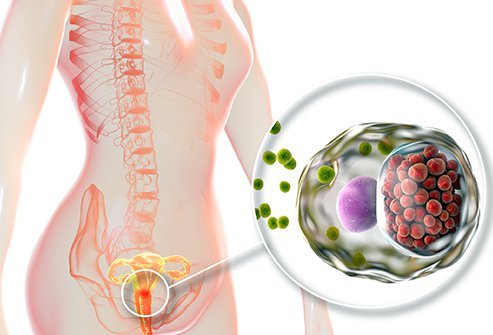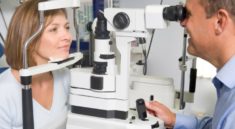Chlamydia is very unlikely to go away on its own without a treatment. Even though the symptoms may diminish briefly, the chlamydia infection may remain in the body if no proper treatment is received. To get rid of the illness, it is important to seek diagnosis and treatment as soon as possible. To ensure that chlamydia is treated, you must complete the whole course of medicines given by your doctor. Each and every dose must be taken as per instructions, do not stop taking the antibiotics until there is nothing left.
What If Chlamydia Left Untreated?
If treatment is not completed, chlamydia infection may cause the following undesirable complications.
- Pelvic inflammatory disease, often known as PID, are infections and inflammations of the uterus, ovaries, and fallopian tubes in women.
- Subfertility
- The Fitz-Hugh-Curtis Syndrome, an inflammation of the tissue lining the liver and surrounding tissue.
- Chlamydia without proper treatment in pregnant ladies can result in significant complications such as preterm labour (delivery before 37 weeks of gestation), ophthalmia neonatorum (vertical transmission of infection causing conjunctivitis or red eye in the baby), and risk of newborn pneumonia.
- Following chlamydia infection, men and women may acquire reactive arthritis, inflammation of the joints.
- Men experience less chlamydia-related symptoms than women. Chlamydia infection can occasionally cause epididymitis, an infection and inflammation of the tube that transports sperm from the testicles, which causes discomfort and fever. Chlamydia can cause infertility in males on rare occasions.
How Can I Treat Chlamydia Infection?
Antibiotics are mandatory to treat chlamydia, which cannot be replaced by any home remedies. As Chlamydia is a bacterial infection, it must be treated with medicines, especially the specific antibiotics prescribed by doctors. Make sure to complete or finish the prescribed antibiotics even if the symptoms are relieved, because the remnant of the bacteria might still remain in the body. This will prevent incomplete treatment and risk of complications.
Nonetheless, there are a few things you may try out to alleviate symptoms while you wait for the antibiotics function to kick in. Remember that these remedies are only used for symptomatic relief, they do not cure the disease. Antibiotics are the most effective approach to fully alleviate the infection symptoms. As examples:
- Take pain relievers such as paracetamol (panadol) or NSAIDs (ibuprofen or so) to alleviate pain and fever.
- Apply a cold compress to reduce inflammatory symptoms.
- Goldenseal, a herb, may help with inflammation and other symptoms.
- Take an echinacea supplement to assist our immune system.
Furthermore, chlamydia is a common sexually transmitted infection or disease. IIf you are sexually active, have a partner or have had intercourse with someone recently, do discuss your chlamydia diagnosis with them. They might need to be screened and tested for the risk of chlamydia infection and treated accordingly. If your partner does not seek treatment, there is a chance that they will pass the infection on to you, even after you have recovered from this disease.
How Can I Prevent Chlamydia In The Future?
Reinfection of Chlamydia is possible even after being treated. It is critical to protect oneself by using measures such as latex male condoms during intercourse. When worn regularly and appropriately, these condoms can minimise the risk of contracting or transmitting chlamydia within one another. One of the most effective method of preventing chlamydia is to avoid vaginal, anal, and oral sex thoughout the infection or involve in multiple partners relationship or with a partner who has been tested for chlamydia and is known to be untreated.
However if your partner(s) were treated for chlamydia, keep in mind that you must be retested after three months following treatment to reconfirm your infective status.





